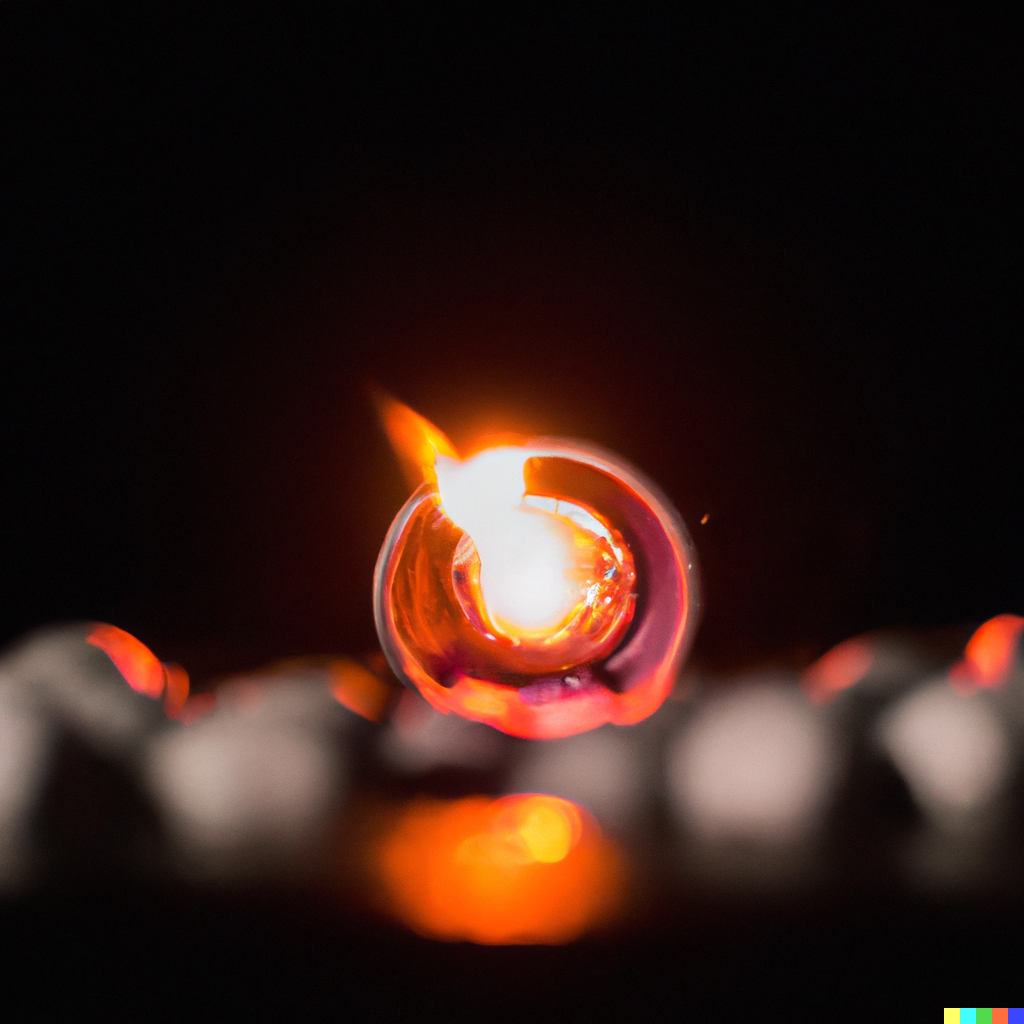Free Shipping on Canadian orders over $175
Free Shipping on Canadian orders over $175

The Pros and Cons of Annealing Brass Cartridge Casings
August 31, 2023 4 min read
When it comes to reloading ammunition, the process of annealing brass cartridge casings is one of those topics that raises varying opinions among firearm enthusiasts and professionals alike. Annealing, which involves heating the brass to a certain temperature and then allowing it to cool, is a process meant to extend the lifespan of your casings, among other advantages. But is it a one-size-fits-all solution?
Let's delve into the pros and cons of annealing brass cartridge casings, hopefully helping you decide whether or not this technique fits your reloading needs. Get ready for a journey into the nuances of metalwork, chemistry, and firearms safety.
What is Annealing?
Before debating the advantages and disadvantages, let's quickly define what annealing is. Annealing is a heat treatment process used to alter the physical properties of a material, typically metals and in this case, brass casings. For cartridge casings this involves heating them to a temperature of around 600–750°F (315–400°C) and then allowing them to cool at a controlled rate. The process aims to relieve stresses built up in the casing material, making it more malleable and extending its useful life.
The Pros of Annealing Brass Cartridge Casings
1. Extended Case Life
First and foremost, annealing extends the life of your brass casings. In this environment of casing shortages everywhere you look, that might sell it right there. Repeated firings and resizings harden the brass, making it brittle and a brittle casing is prone to cracks and splits, which makes the casing an expensive write-off as a safety hazard and a waste of material. Annealing helps restore the metal's original crystalline structure, increasing its durability.
2. Improved Accuracy
A more uniform case neck tension can lead to increased accuracy. When you anneal a casing, you’re making the brass softer and more consistent in terms of its structure. This uniformity ensures that the bullet is seated in the casing with equal tension all around, contributing to a more consistent shot.
3. Better Resizing
When brass becomes work-hardened from multiple firings and resizings, it becomes increasingly difficult to properly resize. Annealing softens the brass, making it easier to work with during the resizing process.
4. Consistency Across Multiple Firings
When you’re shooting, especially for precision purposes, consistency is key. Annealing can provide a level of uniformity across multiple firings that is difficult to achieve otherwise.
5. Resource Efficiency
If you're an avid reloader, annealing can save you money in the long run. By extending the lifespan of your brass, you reduce the need to purchase new casings frequently.
The Cons of Annealing Brass Cartridge Casings
1. Requires Special Equipment and Knowledge
Annealing isn’t as simple as holding a torch to your brass and hoping for the best. It requires specialized equipment and a good understanding of how to properly execute the technique to avoid ruining your casings. Here's a quick rundown:
-
Propane Torch
A propane torch provides the flame needed to heat the brass. It’s essential to choose a torch that offers adjustable flame control so you can regulate the temperature effectively.
-
Rotation Device or Shell Holder
You’ll need a device to rotate the casing as you heat it, ensuring even distribution of heat. This could be a drill set up to spin the casing, a case-turning socket, or specialized annealing machines that come with built-in rotation mechanisms.
-
Temperature Indicators
Temperature-sensitive compounds or markers can be applied to the brass to give a visual indication when the casing reaches the desired annealing temperature. This takes out some of the guesswork and helps avoid overheating.
-
Heat Shields or Screens
These are used to protect the base of the cartridge from excessive heat, ensuring only the neck and shoulder are annealed. This is crucial because overheating the base can compromise its structural integrity.
-
Safety Gear
Never underestimate the importance of safety. Heat-resistant gloves and eye protection are necessary when performing any kind of metal annealing to protect against burns or other injuries.
-
Calipers or Micrometers
To measure the wall thickness and uniformity of the casing both before and after annealing, precision measuring tools like calipers or micrometers are highly beneficial.
-
Water Bath or Cooling Tray
After the annealing process, casings need to be cooled down at a controlled rate. A water bath or cooling tray can be used for this purpose.
2. Risk of Overheating
Excessive heat can irreversibly damage the brass, making it unsafe for use. The line between just right and too much is incredibly fine, and inexperienced reloaders might cross it.
3. Time-Consuming
Depending on how many casings you need to anneal, the process can be very time-consuming, especially if you’re annealing by hand.
4. Not Always Necessary
For casual shooters who don’t put heavy wear on their casings, the annealing process may be an unnecessary step. Each firing and resizing does not impose the same stress on all types of brass, and some may find their brass stays within acceptable limits without needing to be annealed.
5. Possibility of Uneven Annealing
Improper annealing can lead to uneven softening of the brass. This can create imbalances that may compromise the uniformity and accuracy of your shots.
To Sum Up
Annealing brass cartridge casings is a topic fraught with both advocates and skeptics. While the process offers several significant advantages like extended case life, improved accuracy, and better resizing, it comes with its own set of disadvantages like the requirement for specialized knowledge, the risk of overheating, and time investment.
Therefore, whether or not to anneal your brass casings depends on your specific needs and how you balance the pros and cons. If you’re a high-volume or precision shooter, the benefits may outweigh the negatives. However, for the casual reloader, the additional time and effort may not justify the gains. Happy reloading!
Leave a comment
Comments will be approved before showing up.
We clean up after ourselves.
Ecommerce deliveries have a carbon footprint. That's why we support verified projects that remove carbon from the air.



Every delivery’s carbon footprint is calculated based on weight, shipping method, and distance traveled. We neutralize these emissions by purchasing verified carbon removal credits from groundbreaking projects.



With your purchase, you’ll join a community of proactive merchants and customers dedicated to a sustainable future. Together, we've removed emissions for over 70 million deliveries and removed over 50 thousand tonnes of carbon.

We work with a network of pioneering carbon removal companies that have been vetted by the commerce platform Shopify.

